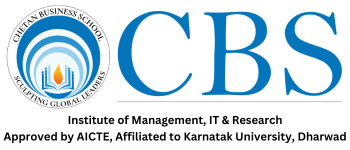EQ: The Hidden Skill That Can Fast-Track Your Career
In today’s fast-paced and competitive business world, technical skills and a high IQ is only the starting point. To fully succeed, navigate challenges, and build a fulfilling career, there’s another, more crucial, form of intelligence that comes into play: Emotional Intelligence (EI), or Emotional Quotient (EQ).
You have seen it in action. It’s the coworker who maintains composure and attention amid a high-pressure project. It is the manager who can tell when team morale is down and knows exactly what to say. It is the team member who can respectfully disagree with a colleague while still finding a helpful solution. These individuals are not only brilliant; they are also emotionally intelligent.
So, what exactly is EI, and why is it becoming the most sought-after skill for employees in every industry?
Emotional Intelligence (EI), often known as EQ, is the ability to perceive, analyze, and manage one’s own emotions while favourably influencing the emotions of others. It goes beyond technical knowledge and IQ to assess how well you connect, communicate, and work with others.
Unlike hard capabilities that robots and AI can copy, emotional intelligence (EI) is uniquely human quality which is why it is becoming one of the most in-demand skills across industries. Employers recognize that, while technical skills are useful, emotional intelligence is what generates teamwork, leadership, resilience, and long-term success.
Why EI Is Becoming the #1 Workplace Skill (With Stats to Prove It)
- Performance Driver: Emotional intelligence accounts for 58% of success in all job types. In fact, 90% of top performers score high in EI, while only 20% of low performers do.
- Higher Earnings: Employees with strong EI earn an average of $29,000 more per year than those with low EI.
- Career Growth: Around 75% of managers consider EI when deciding on promotions or raises. Leadership potential is now measured not just by technical ability, but by empathy, adaptability, and people skills.
- Stronger Leadership: Studies show that EI explains 90% of the performance difference between outstanding and average leaders.
- Retention & Culture: Employees under emotionally intelligent managers are 4x less likely to quit, leading to stronger engagement and a healthier workplace culture.
- Future-Proof Skill: The World Economic Forum lists EI among the top 10 most in-demand skills through 2025, while McKinsey predicts demand for emotional skills will rise by 26% by 2030.
Conclusion
In today’s competitive workplace, EI is not just a “soft skill”—it’s a power skill. While IQ and technical expertise can get you hired, it’s your emotional intelligence that determines how far you’ll go. From building trust and handling stress to leading with empathy and boosting team performance, EI is the key that unlocks long-term career success.
Remember: IQ may help you land a job, but EQ will help you grow in it.
By;
Prof. Shweta Sajjanar, BE, MBA, KSET (PhD)
Assistant Professor



